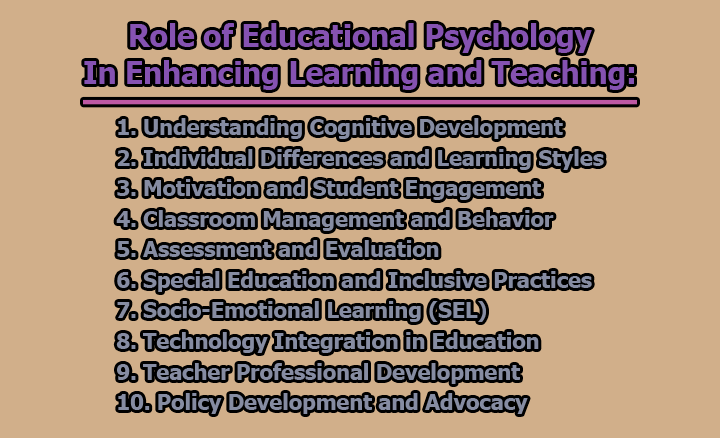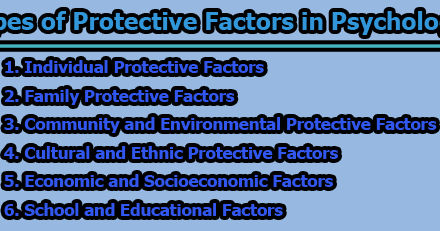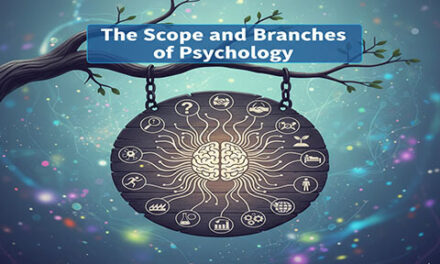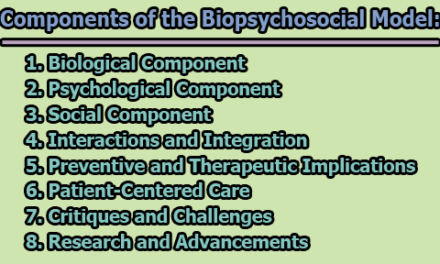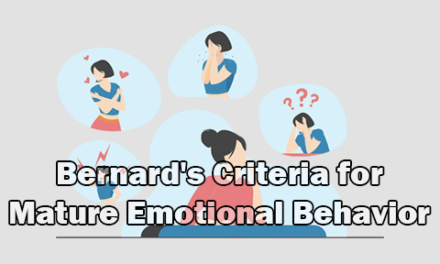Role of Educational Psychology in Enhancing Learning and Teaching:
Educational psychology is a dynamic field that investigates the psychological processes involved in learning and teaching. It plays a pivotal role in shaping educational practices, policies, and interventions to optimize the learning experience for students and enhance the effectiveness of teaching strategies. In this article, we will delve into the multifaceted role of educational psychology in enhancing learning and teaching.
1. Understanding Cognitive Development: Educational psychology delves into the intricate processes of cognitive development, offering valuable insights into how individuals acquire, process, and organize information. A seminal figure in this field, Jean Piaget, proposed a comprehensive theory of cognitive development that identified distinct stages through which children progress (Piaget, 1972). Piaget’s stages, including sensorimotor, preoperational, concrete operational, and formal operational, underscore the importance of tailoring educational approaches to align with students’ cognitive readiness at different developmental milestones.
For instance, educators can apply Piaget’s theory in designing age-appropriate activities that resonate with the cognitive abilities of students. In early childhood, a focus on hands-on, experiential learning may align with the sensorimotor and preoperational stages, while older students in the concrete operational stage may benefit from more abstract and complex problem-solving tasks. By understanding cognitive development, educators can create a curriculum that scaffolds learning experiences, ensuring they align with students’ cognitive capabilities and promote optimal learning outcomes.
2. Individual Differences and Learning Styles: Educational psychology acknowledges the rich diversity among learners, recognizing that each student possesses a unique set of characteristics, strengths, and learning styles (Dunn, 1984). Howard Gardner’s theory of multiple intelligences further emphasizes this diversity by identifying various ways individuals may excel, such as linguistic, logical-mathematical, spatial, musical, bodily-kinesthetic, interpersonal, intrapersonal, and naturalistic intelligences (Gardner, 1983).
Understanding these individual differences allows educators to implement differentiated instruction, tailoring teaching methods to accommodate various learning preferences. For example, a student with a strong kinesthetic intelligence may benefit from hands-on activities, while a linguistically gifted student may thrive in language-rich environments. By embracing diverse learning styles, educational psychology supports an inclusive approach to education, ensuring that all students can engage with and excel in the learning process.
3. Motivation and Student Engagement: Motivation is a critical factor influencing students’ commitment to learning and academic success (Deci & Ryan, 1985). Educational psychology explores the dynamics of motivation, distinguishing between intrinsic motivation, where individuals are driven by internal factors such as personal interest, and extrinsic motivation, where external rewards or punishments influence behavior.
Educators can leverage this knowledge to cultivate a motivating learning environment. For example, incorporating real-world applications of concepts, providing choices in assignments, and recognizing students’ achievements can enhance intrinsic motivation. Understanding the impact of external motivators, such as grades or rewards, helps educators strike a balance to avoid undermining students’ internal drive. By fostering intrinsic motivation and aligning instructional strategies with students’ interests, educational psychology contributes to creating an engaging and motivating educational experience.
4. Classroom Management and Behavior: Effective classroom management is a cornerstone of successful teaching, and educational psychology provides valuable insights into understanding and addressing student behavior (Emmer & Stough, 2001). Drawing from behavioral theories, educators can employ proactive strategies to create a positive and structured learning environment.
Behavioral psychologists, such as B.F. Skinner, introduced principles like positive reinforcement and behavior modification, emphasizing the role of consequences in shaping behavior. Applying these principles, educators can establish clear expectations, implement consistent consequences, and use positive reinforcement to encourage desired behaviors. Moreover, educational psychology explores the psychological factors influencing student behavior, such as socio-emotional well-being and peer interactions, enabling educators to address underlying issues and promote a positive classroom culture.
5. Assessment and Evaluation: Educational psychology plays a pivotal role in the development and refinement of assessment tools used to gauge students’ understanding and skills (Popham, 1997). Psychometric principles guide the creation of assessments that are reliable, valid, and fair, ensuring they accurately measure what they intend to assess.
Educators can benefit from this knowledge by designing assessments that align with instructional goals and provide meaningful insights into student learning. Understanding the principles of formative and summative assessment allows teachers to gather ongoing feedback to inform instructional decisions and evaluate overall student progress. Additionally, educational psychology assists educators in interpreting assessment results, guiding the implementation of targeted interventions to address specific learning needs. This data-driven approach ensures that assessment serves as a tool for continuous improvement, enhancing the overall effectiveness of teaching and learning practices.
6. Special Education and Inclusive Practices: Educational psychology contributes significantly to fostering inclusive education by addressing the diverse needs of students, including those with varying abilities and disabilities (Salend & Duhaney, 1999). By understanding the psychological aspects of special education, educators can create learning environments that accommodate the unique requirements of all students, promoting an inclusive and supportive atmosphere.
Educational psychologists collaborate with special education professionals to develop strategies that cater to individual learning profiles. This may involve creating individualized education plans (IEPs) that outline specific accommodations and modifications to meet the diverse needs of students with disabilities. Inclusive practices not only benefit students with special needs but also contribute to a more accepting and diverse educational community where all learners feel valued and included.
7. Socio-Emotional Learning (SEL): Recognizing the impact of emotions on learning and social interactions, educational psychology places a significant emphasis on socio-emotional learning (Elias et al., 1997). SEL involves the development of skills related to self-awareness, self-regulation, social awareness, interpersonal relationships, and responsible decision-making.
Educational psychologists collaborate with educators to integrate SEL principles into the curriculum, fostering a positive and emotionally supportive learning environment. By explicitly teaching and reinforcing socio-emotional skills, students can develop the emotional intelligence necessary for navigating social situations, managing stress, and building positive relationships. This holistic approach to education contributes to students’ overall well-being and equips them with essential skills for success in both academic and real-world contexts.
8. Technology Integration in Education: In the era of digital advancements, educational psychology explores how technology can be effectively integrated into teaching and learning processes (Means et al., 1993). By understanding the cognitive processes involved in technology-mediated learning, educators can leverage digital tools to create engaging and interactive learning experiences.
Educational psychologists collaborate with educators to design technology-enhanced lessons that align with pedagogical goals. This may include interactive simulations, online collaboration platforms, and multimedia resources. Additionally, understanding the potential impact of technology on attention, motivation, and information processing allows educators to make informed decisions about the appropriate use of technology in the classroom. By incorporating technology strategically, educational psychology supports the development of digital literacy and prepares students for the evolving demands of the 21st-century workforce.
9. Teacher Professional Development: Educational psychology contributes to the ongoing professional development of teachers by providing evidence-based insights into effective teaching practices (Guskey & Yoon, 2009). By staying informed about the latest research in educational psychology, educators can continually refine their instructional strategies, staying attuned to the evolving needs of their students.
Professional development opportunities informed by educational psychology may include workshops, seminars, and collaborative learning communities. Teachers can explore topics such as effective feedback, differentiated instruction, and classroom management strategies grounded in psychological principles. By continually honing their skills based on evidence-based practices, educators enhance their teaching effectiveness and contribute to positive student outcomes.
10. Policy Development and Advocacy: Educational psychologists play a crucial role in shaping educational policies and advocating for evidence-based practices in schools (Lapan et al., 2002). Through rigorous research and data analysis, they provide valuable input to policymakers, ensuring that educational decisions are informed by empirical evidence and best practices.
This involvement in policy development extends to advocating for student well-being, equitable access to quality education, and the implementation of inclusive practices. Educational psychologists collaborate with educational leaders and policymakers to address systemic issues, promote positive school climates, and advocate for resources that support the psychological and academic needs of all students. By bridging the gap between research and policy, educational psychology contributes to the creation of educational environments that foster optimal learning and development.
In conclusion, the role of educational psychology in enhancing learning and teaching by understanding cognitive development, recognizing individual differences, addressing motivation and behavior, and incorporating socio-emotional learning, educators can create a supportive and enriching environment. Additionally, educational psychology informs assessment practices, guides the integration of technology, and contributes to teacher professional development and policy formulation. As education continues to evolve, the insights provided by educational psychology remain instrumental in fostering an inclusive, engaging, and effective learning experience for all students.
References:
- Deci, E. L., & Ryan, R. M. (1985). Intrinsic motivation and self-determination in human behavior. New York: Plenum Press.
- Dunn, R. (1984). Learning styles: Perceptions and preferences. Reston, VA: National Association of Secondary School Principals.
- Elias, M. J., Zins, J. E., Weissberg, R. P., Frey, K. S., Greenberg, M. T., Haynes, N. M., … & Shriver, T. P. (1997). Promoting social and emotional learning: Guidelines for educators. Alexandria, VA: Association for Supervision and Curriculum Development.
- Emmer, E. T., & Stough, L. M. (2001). Classroom management: A critical part of educational psychology, with implications for teacher education. Educational psychologist, 36(2), 103-112.
- Gardner, H. (1983). Frames of mind: The theory of multiple intelligences. New York: Basic Books.
- Guskey, T. R., & Yoon, K. S. (2009). What works in professional development? Phi Delta Kappan, 90(7), 495-500.
- Lapan, R. T., Gysbers, N. C., & Sun, Y. (2002). The impact of more fully implemented guidance programs on the school experiences of high school students: A statewide evaluation study. Journal of Counseling & Development, 80(1), 64-74.
- Means, B., Toyama, Y., Murphy, R., Bakia, M., & Jones, K. (2013). Evaluation of evidence-based practices in online learning: A meta-analysis and review of online learning studies. Washington, DC: U.S. Department of Education.
- Piaget, J. (1972). Intellectual evolution from adolescence to adulthood. Human Development, 15(1), 1-12.
- Popham, W. J. (1997). What’s wrong—and what’s right—with rubrics. Educational Leadership, 55(2), 72-75.
- Salend, S. J., & Duhaney, L. M. G. (1999). The impact of inclusion on students with and without disabilities and their educators. Remedial and Special Education, 20(2), 114-126.

Library Lecturer at Nurul Amin Degree College

